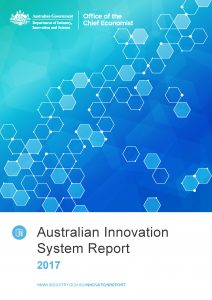 Australia’s Office of the Chief Economist released a report on December 6 2017 whose relevance to occupational health and safety (OHS) is not immediately apparent but contributes to understanding the context of OHS in modern business processes.
Australia’s Office of the Chief Economist released a report on December 6 2017 whose relevance to occupational health and safety (OHS) is not immediately apparent but contributes to understanding the context of OHS in modern business processes.
Category: design
Rail-related suicides discussed at ergonomics conference
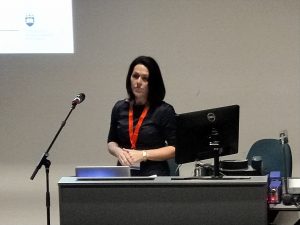 Rail-related suicides are tragedies that ripple throughout society affecting families of the suicides as well as the train drivers, their families and their colleagues. Various strategies are being trialled but often the results of interventions are hard to quantify. At the annual conference of the
Rail-related suicides are tragedies that ripple throughout society affecting families of the suicides as well as the train drivers, their families and their colleagues. Various strategies are being trialled but often the results of interventions are hard to quantify. At the annual conference of the
Heights, Standards and Safety
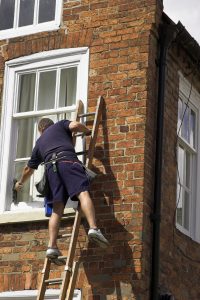 Engineering and design Standards have existed globally for a long time. They have considerable authority, often provided through legislation, and underpin many of the safety devices and equipment used in workplaces. But does compliance with Standards mean that something is safe?
Engineering and design Standards have existed globally for a long time. They have considerable authority, often provided through legislation, and underpin many of the safety devices and equipment used in workplaces. But does compliance with Standards mean that something is safe?
The easy answer is no. A recent presentation to the Central Safety Group (CSG) by David Davis of the Working at Heights Association illustrated this gap between workplace safety compliance and compliance with Standards.
ACCC releases Issues Paper to start public quad bike safety consultation
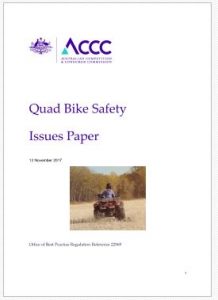 The Australian Competition & Consumer Commission (ACCC) has released an issues paper on quad bike safety with a deadline for public submissions of mid-December 2017. An ACCC spokesperson has advised that submissions will be made available to the public through the website unless privacy and confidentiality is requested. A draft recommendation is scheduled for early 2018 with a final recommendation in mid-2018.
The Australian Competition & Consumer Commission (ACCC) has released an issues paper on quad bike safety with a deadline for public submissions of mid-December 2017. An ACCC spokesperson has advised that submissions will be made available to the public through the website unless privacy and confidentiality is requested. A draft recommendation is scheduled for early 2018 with a final recommendation in mid-2018.
Issues papers serve two purposes – the provision of information and questions of particular importance. This article will look at some of those questions.
OHS and the future of jobs rather than the future of work
 Over the last few months, SafetyAtWorkBlog has received several new OHS-related books for review. There’s not enough time to undertake a deep review of each book so here is the first of a series of quick reviews.
Over the last few months, SafetyAtWorkBlog has received several new OHS-related books for review. There’s not enough time to undertake a deep review of each book so here is the first of a series of quick reviews.
Look to the source of workplace conflict, exploitation and injustice
 Occupational health and safety advocates are pushing for safety management and strategies to refocus on people by talking about “people-centric” approaches and recalibrating legislation to re-emphasise prevention. This push parallels society’s frustration with political strategies that favour big business, the under-investment in education and health care systems and companies that announce record profits at the same time as sacking staff. That frustration is becoming accepted by political parties that are starting to apply more people-centric policies or by countries and States that are appointing representatives from outside the mainstream political organisations.
Occupational health and safety advocates are pushing for safety management and strategies to refocus on people by talking about “people-centric” approaches and recalibrating legislation to re-emphasise prevention. This push parallels society’s frustration with political strategies that favour big business, the under-investment in education and health care systems and companies that announce record profits at the same time as sacking staff. That frustration is becoming accepted by political parties that are starting to apply more people-centric policies or by countries and States that are appointing representatives from outside the mainstream political organisations.
At a closing event for National Safe Work Month on 1 November 2017, WorkSafe Victoria’s CEO,
Industry group expresses concerns about new safety Standard
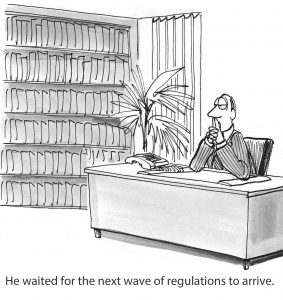 An odd media statement was released by the Australian Chamber of Commerce and Industry (ACCI) on 23 October 2017 regarding the new international occupational health and safety (OHS) management system Standard ISO45001. Several days later Standards Australia released a statement that supported and clarified ACCI’s position
An odd media statement was released by the Australian Chamber of Commerce and Industry (ACCI) on 23 October 2017 regarding the new international occupational health and safety (OHS) management system Standard ISO45001. Several days later Standards Australia released a statement that supported and clarified ACCI’s position
ACCI states that
“….the draft standard is still several months away from being finalised”.
